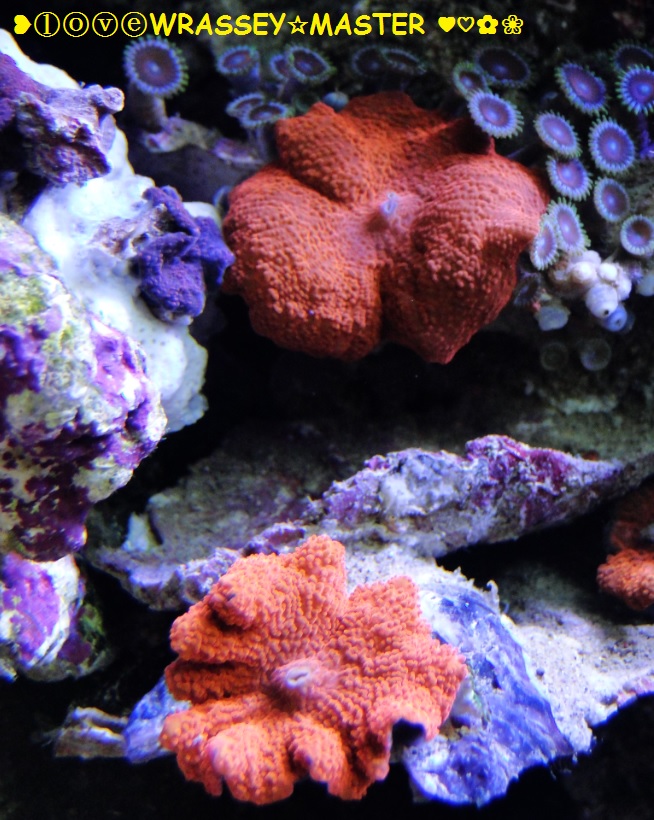Metallic Orange Mushrooms
Mushroom corals are distinct from other corals by their o.r.a.l disc. This is the umbrella shaped, or flat, circular disc which surrounds their opening. Their hypostomes, or mouths, protrude (think of pursed lips), unlike other corals that have flat or concave mouths. On their discs, they do have tentacles-but they look more like little bumps, warts, or beads (these tentacles are usually referred to as papillae or verrucae). The “stalk” of the mushroom is called the column, and where it attaches to the substrate is called the pedal disc (think of it as a “foot”).
Mushroom corals are considered polytrophic. They do rely on zooxanthellae and photosynthesis for energy. In addition, many corallimorphs will absorb nutrients directly from the water. If there is an aggressive skimming process in your reef aquarium, your mushrooms may not thrive. Moreover, some mushrooms will prey on fish or other invertebrates. These piscivorous corals, notably Amplexidiscus fenestrafer, can quickly (within 3 seconds) enclose fish. Beware keeping clownfish and other anemone fish in the same aquarium with mushroom corals.
Orange mushroom corals.Generally speaking, false corals prefer moderate lighting intensity and moderate water current. Mushrooms are commonly found in deeper waters, shaded waters, or directly beneath other corals. If your specimen is more of a pastel color, it may be stressed due to high lighting intensity, as well as other factors. As most mushrooms are found in deeper water, high currents or fluctuations in salinity are typically not tolerated. (Corals in shallow reef environments are more acclimated to fluctuations, especially of low salinity, as they might endure a deluge of fresh water in a rainstorm.) Despite these restrictions, mushroom corals are considered rather easy to keep and ideal for “beginner” aquarists. By and large, they seem to thrive in high nutrient waters (perhaps do to their ability to absorb nutrients from the water), so slightly higher nitrate levels should not be worrisome.
Although there are some conflicting reports as to whether mushroom corals are aggressive, hobbyists should still give them space in their reef aquarium to account for growth of the colony. Additionally, mushroom corals grow quickly in ideal conditions in captivity, and will bud on a regular basis. Also, some polyps may detach from the substrate, and this is a great time to move it to a new home within your aquarium and start a second colony.



Recommended Comments
Join the conversation
You can post now and register later. If you have an account, sign in now to post with your account.